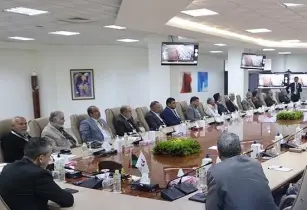DNV, the independent energy expert and assurance provider, strengthened its commitment to tackling climate change through a Memorandum of Understanding (MoU) made with the Egyptian General Petroleum Corporation (EGPC) to support their effort to set science-based targets for their net zero goals
Industry
Algeria, among OPEC+ countries, to cut production by 1.15 mn bpd
Some OPEC+ countries have surprised markets with a voluntary cut of 1.15 mn barrels per day (bpd) causing oil prices to rise and feeding inflationary fears
NOC Libya and Honeywell hold talks on South Refinery project
The National Oil Corporation of Libya headquarters organised a meeting between the NOC chairman, Farhat Ben Gdara, and Khaled Hashem, the regional director of Honeywell
Ministry of Mines and Energy to publish Namibia's official investment report
Energy Capital & Power, in partnership with the Ministry of Mines and Energy of the Republic of Namibia, will publish Namibia’s official investment report for the energy and mineral resources sectors
Technip Energies eyeing major hydrocarbon projects in Africa
French engineering and technology company Technip Energies has emerged as the partner of choice for African oil and gas producers, with the company deploying its state-of-the-art technology and developing a series of large-scale projects across the African continent












